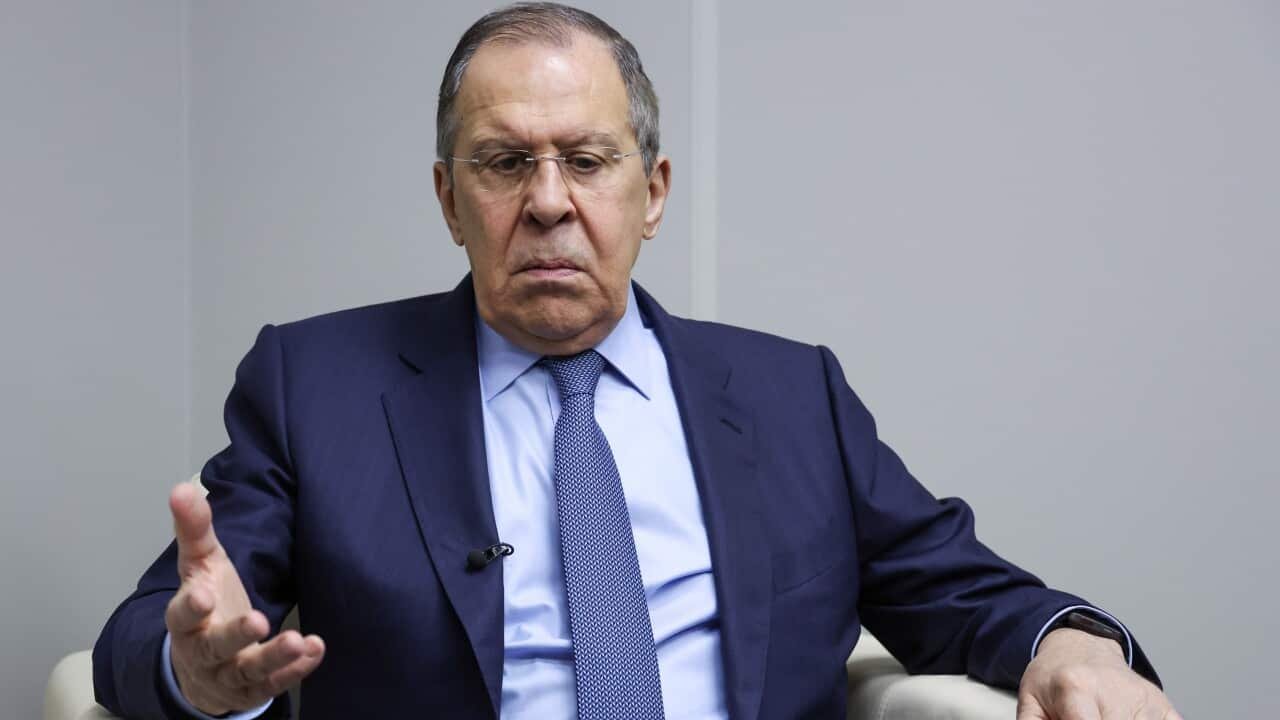Good morning. It's Friday 17 June 2022, and here's a round up of the latest news.
Anthony Albanese invited to Kyiv
Mr Albanese is to join world leaders at a NATO summit in Madrid at the end of this month, representing allies in Asia who are responding to the invasion in Ukraine.
No decision is confirmed over whether Mr Albanese will take up the invitation to Kyiv while attending the Summit.

President Volodymyr Zelensky has invited Prime Minister Anthony Albanese to visit Ukraine. Source: AAP
Russia hits more than 100 Australians with sanctions
, including journalists and defence officials.
The move cited what it calls Australia's "Russophobic agenda".
Journalists from ABC News, The Sydney Morning Herald and Sky News were among the newly-sanctioned, as well as several defence officials.
Russia announced a similar move against dozens of British journalists earlier in the week.
Energy improvements remain uncertain
Australia's energy regulator says to say when normal operations will resume.
, which began in 1998, and means the operator will control directing supplies from energy generators to the east coast power grid.
It came after the eastern states were warned of potential power outages earlier this week.
Appearing on ABC's Q+A program, Energy and Climate Change Minister Chris Bowen has blamed the current crisis on Australia's previous governments, saying their approach to renewable energy investment was severely lacklustre.
"What I do hold [the previous government[ responsible for is a decade of a lack of investment, the lack of transmission, the lack of storage, the lack of renewable energy, which is really why we're in this crisis," Mr Bowen said.

Federal Minister for Climate Change and Energy Chris Bowen. Source: AAP / DAN HIMBRECHTS/AAPIMAGE
Interest rates raised across Europe
, fuelled by the pandemic and war in Ukraine.
The rises in borrowing rates across Europe followed the U-S, where the Federal Reserve's rate rise this week was the largest in almost three decades.
In the UK, the Bank of England raised the interest rate from 1 per cent to 1.25 per cent, the fifth consecutive rise, pushing them to the highest rate in 13 years.
In Switzerland, the Swiss National Bank caught markets off guard, raising its policy rate to -0.25 per cent from -0.75 per cent.
The moves come just a day after the European Central Bank agreed to plans in an emergency meeting to contain borrowing costs in the bloc's south so it could raise rates in both July and September.
Global deaths linked to COVID-19 steadily grows in past week
After five weeks of declining COVID-19 deaths, the number of fatalities reported globally increased by 4 per cent last week.
The World Health Organization (WHO) says there were 8700 deaths last week, with a 21 per cent jump in the Americas and a 17 per cent increase in the Western Pacific.
This comes as coronavirus cases have continued to fall since the peak in January, with about 3.2 million new cases reported last week.
Despite the fall in cases, there were significant spikes in some regions, including the Middle East and Southeast Asia.
WHO Director-General Tedros Adhanom Ghebreyesus says the number of infections is under-reported due to many countries reducing surveillance and testing.

